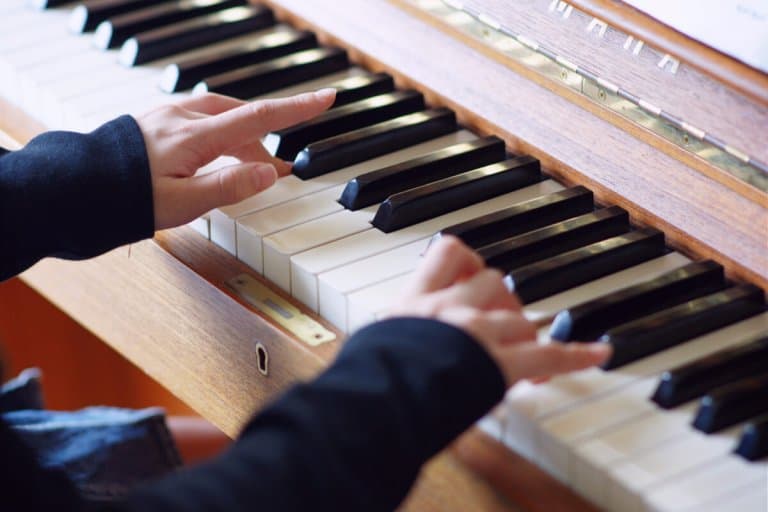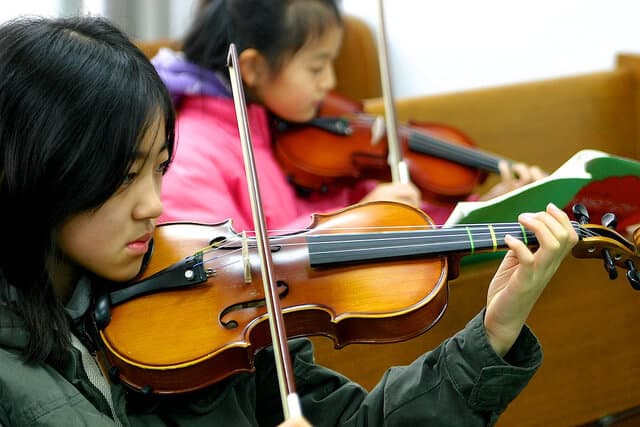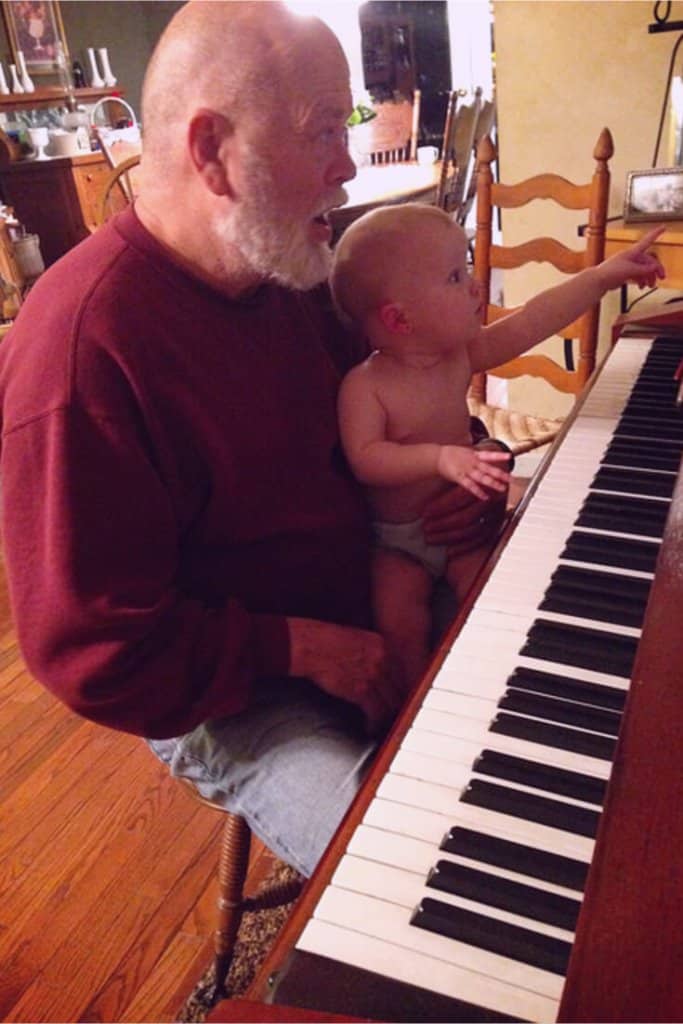The Benefits of Learning Music at an Early Age

As higher education becomes more competitive, many parents turn to extracurricular activities as one way to bulk up their child’s curriculum. Often, that includes music lessons for various instruments.
Music isn’t just a resume builder!
Besides the clear educational advantage music provides for your child, there are many other benefits that you should consider. Many of which have nothing to do with a mere college application, but can have long-term repercussions in your child’s professional, emotional and personal life.
When thinking about musical educational, I recommend viewing it as a lifelong passion. A calling. Something that can (and will) change your life and your child’s life for the better.
But how?
Music Will Change Your Child’s Brain
By starting music at a young age and pursuing it as an almost daily activity, it can contribute to the development of your child’s brain.
The level of engagement matters, but overall it can help them develop “Neurophysiological distinction.”
What’s that? In basic English, it means your kiddo can distinguish between the different sounds. This, in turn, will increase their literacy abilities and help with their broader academic performance.
For it to work, however, you must make sure your child is just as enthusiastic about learning music as you are. You’ll also need to encourage him or her to actively participate in lessons/class.
Even More Brain Benefits
Early music instruction helps to develop stronger neurological connections, better information processing, better memory, attention, and motor coordination, and even increase gray matter and IQ.
Music for Developing Focus & Fighting Distractions
When you really devote yourself to an instrument, it requires a lot of training.
Dedication requires a lot of focus. At all times. And in most cases, a teacher is pressuring you to do so.
In a world where so many distractions exist, children often struggle with the amount of stimulus they receive. As a result, sometimes kids are unable to finish what they started because they simply move on to something else.
This is not a character trait you want sticking around for the long-term. In fact, it can have grave consequences later in life. Someone who is unable to focus and devote themselves to a task is someone who can’t work properly no matter the setting, be it an office or an amusement park.

If a child really lacks focus, he or she will essentially make any lesson, instruction, or class useless. Talk about things that are detrimental to your child’s education.
Musical educational, because of its inherently practical nature, is greedy (in a good way) for attention. It will completely absorb your child’s attention and, little by little, train him or her to become focused and perfectionist individuals (out of tune is unforgivable).
Music Helps Us Work Through Emotional Issues
For children who have been victims of trauma and having trouble communicating their emotions, music can be a live saver. By exercising more parts of the brain than most activities, music is capable of reaching into the core of a child the way most things simply cannot.
Expressing and Regulating Emotion
Music activates the emotional system of the brain and helps children learn how to regulate it.
Children who have been victimized can use music to develop emotional responses and learn how to better handle their memory, associations, and focus in order to learn.
It provides students with an instrument with which to express their emotions, even violent and sad ones, in a healthy way.
Other Opportunities
Music is also a way to develop healthy relationships with teachers (and colleagues) who are connected through a similar passion. Children need role models. This is an excellent avenue for finding one.
Music can do wonders for improving a child’s self-esteem by giving him or her a platform through which to connect and dazzle other people. Sitting down at a piano is something that can easily break the ice of an intimidating social situation and allow the child to introduce him or herself to others in a new light, showcasing their talent.
Music Improves Your Child’s Self-Esteem
 Learning to master an instrument is a tremendous achievement. And believe me, children can recognize it.
Learning to master an instrument is a tremendous achievement. And believe me, children can recognize it.
Young adults that learn music often report increased self-achievement, self-confidence, and intrinsic motivation. By helping your child develop a skill through their own hard work and practice, you grant him or her with the necessary confidence to battle other types of obstacles in life.
You are teaching them as much about music as you are about resilience.
Particularly in adolescence, children who started learning music at an early age are better equipped to handle the hormonal storm that ensues, because it allows them to relieve tension, alleviate boredom and be free of worries.
Music works as a support that keeps kids from falling into the abyss of low self-worth and low self-efficacy that many teenagers seem incapable of resisting.
Music Leads to Better, Stronger Relationships
Music is a community. The network that your child develops by learning an instrument will be a great source of support later on.
Sense of Belonging
This community provides students with a sense of belonging that can only be rivaled by that of sports. It creates a shared sense of attainment and trust among the musical pupils, and it teaches them about respect and discipline as well.
Valuable Social Skills
It helps to develop teamwork skills as well, something that will serve your child in the future, no matter where he or she chooses to work.
Music provides for this shared sense of empathy, and it can change your child’s life, especially if he or she is timid and has some difficulty making friends.
The pride that comes with helping your group succeed and knowing when and how to be there for others in times of struggle is something that is also learned and that many people in our atomized societies lack.
Music Will Make Your Child Healthier
Musical training, despite its infamous leaning towards competition (this doesn’t usually happen until later on), can contribute to making your child healthier.
Health Benefits of Musical Instruction
It can be a great source of relaxation and stress relief, as mentioned earlier, but it also has benefits for breathing and posture. Musical training is also a kind of exercise, be it the lungs, the arms, the lips or hands, and the muscles required to play an instrument will be significantly developed by this activity.
Wrapping it Up
There are many additional benefits that I didn’t cover in this short article. So, here’s your takeaway.
Your child will be a better person, and student, by learning music. If possible, you should strive to keep him or her motivated and willing to devote himself or herself to an instrument.
Always make sure this a joint decision.
Listen to the feedback your child gives. Engage your child by asking him or her for advice regarding the chosen instrument. Unless they oppose it, be there while they practice.
And always, always be there for the recitals. Believe me, there might be a lot of them!







Leave a Reply